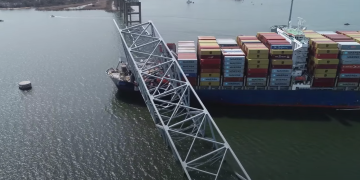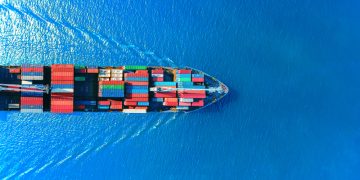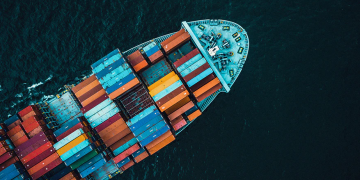During the 2023 Crew Welfare Week, Mr. Simon Grainge, Chief Executive, ISWAN, highlighted that crew welfare now has a higher profile as a result of the pandemic but we must not lose our focus on this important issue. Seafarers of the future will need to cope with the demands of more technology and smaller crews so good quality welfare remains crucial to the future of seafaring and has important implications for recruitment and retention, he explained.
There is much discussion about the impact of technology and the importance of seafarer welfare to the recruitment and retention of seafarers in the future.
At ISWAN, our mission is to support seafarers and their families. We do this through direct services to seafarers and their families such as our helplines, emergency funds and advice on health and wellbeing. But we also work with the wider industry carrying out research, providing training and using our data to inform the maritime sector.
The service for which we are probably best known is “SeafarerHelp”. It’s a free, confidential 24/7, 365 days a year helpline for seafarers and their families. Our operators speak 12 languages between them and it can be contacted by phone, email, WhatsApp, live chat and all the different social media channels. It’s a general helpline providing a mix of practical and emotional support dealing with a wide range of questions from simple inquiries about welfare facilities through to somebody who’s feeling suicidal and needs support.
We have more recently started providing a counseling service for those seafarers who need it.
In addition, two years ago we created YachtCrewHelp which caters specifically for the needs of superyacht crews.
The scope and the scale of what we deal with on our helplines

Long COVID
We all know the impact that COVID-19 had on seafarers and our helpline figures illustrate this. During the first Covid peak in the second quarter of 2020, we saw huge increases in calls about repatriation, financial issues, welfare provisions, mental health issues and physical health concerns. Since then, seafaring has returned to more normal ways of operating but the pandemic had a significant impact on many seafarers and their motivation to remain in the profession.
According to research by Marine Benefits in their Re:Fresh Wellbeing survey, levels of anxiety and depression among seafarers have continued to increase even since they previously carried out the survey at the height of the pandemic in October 2020. Their survey revealed:
- 28% of respondents experiencing depression
- 24% of respondents experiencing anxiety
- Between 53% and 66% of seafarers and highly stressed depending on rank
- 12% feel lonely
- 48% do not have one coworker they can talk to
- 14% of respondents have either decided to leave the seafaring occupation or are considering leaving
The ongoing challenges of Covid pandemic are reflected in ISWAN own helpline data where calls relating to mental health issues remain 146% higher than pre-pandemic levels.
Recruitment and retention
We have also been working with the World Maritime University on their survey into the main factors why seafarers are making the decision to leave seafaring. The survey is looking at the following factors:
- Attention to seafarer’s health and wellbeing
- Family separation
- Lack of shore leave
- Impact of new technologies (automation, decarbonization)
- Leadership culture on board
- Opportunities for promotion and training
- Workload
Traditionally, seafarers have gone to sea for many reasons, but in recent years, the opportunities to see the world and enjoy an adventure are limited so it is more often solely about the financial rewards. There’s a limit to what owners and managers will be able to offer so seafaring has to be made more attractive.
Leadership
There has been increasing focus on the leadership culture at sea. There is a need to broaden the interpretation of leadership beyond technical expertise to include communication skills. Good leadership is essential if we want to address bullying, abuse, harassment, and discrimination which are still clearly areas for concern calls to our helplines on these matters have increased every year since 2019 and grew by 28% in 2022.
There is a risk that the challenges of decarbonization will further undermine the attractiveness of seafaring and lead to even greater numbers leaving the industry. So having the right leadership culture will be even more crucial in supporting seafarers to cope with the pressure of technological change including the safety challenges of handling new and more dangerous fuels.
In conclusion, is clear that the life of seafarers is not getting any easier and it’s unlikely to change in the near future. The future of the industry relies on seafarers who are skilled, motivated and most importantly resilient to the challenges that they will face, so, seafarer welfare is the responsibility of everyone within the industry.
Above article is a transcript from Mr. Simon Grainge’s presentation during the 2023 Crew Welfare Week.
View his presentation herebelow
The views presented are only those of the author and do not necessarily reflect those of SAFETY4SEA and are for information sharing and discussion purposes only.






























































